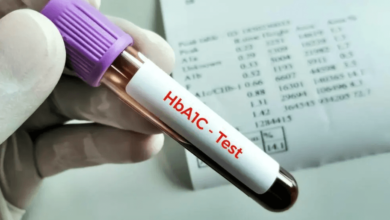Health Check For A Better Tomorrow

Introduction To Preventive Care
Preventive healthcare is one of the most powerful ways to improve life expectancy and quality of life. Instead of waiting for symptoms to appear, regular evaluations allow individuals to detect hidden issues early and take corrective measures. A health check is a structured approach that reviews the body’s vital functions and highlights potential risks. This proactive practice ensures that diseases such as diabetes, heart disease, or hypertension can be managed before they develop into serious conditions.
Why Regular Health Checks Matter
Many health conditions progress silently and show signs only at advanced stages. Routine examinations play an important role in detecting such problems at the earliest possible time. A health check offers insight into blood pressure, cholesterol, sugar levels, and organ function. These results guide doctors in providing the right advice, which often prevents expensive treatments or emergency care later in life. By making regular checks a habit, individuals can safeguard their long-term well-being.
Key Elements Of A Comprehensive Health Assessment
A typical health check consists of several essential components that provide a full view of a person’s medical condition. Common elements include:
- Review of medical history and family health patterns
- Measurement of body weight, body mass index, and blood pressure
- Blood and urine analysis to test sugar, cholesterol, kidney, and liver function
- Imaging studies such as chest X-rays or ultrasounds when needed
- Eye and dental checks for early detection of hidden issues
- Specialist consultations if irregularities are identified
These examinations give both doctors and patients a baseline to compare future results and monitor changes over time.
See also: Streamlining Healthcare Services for Better Patient Support
Benefits Of Early Detection And Intervention
The greatest strength of a health check is its ability to detect diseases at an early stage. Timely identification allows individuals to adopt lifestyle changes, begin medications, or undergo further tests if necessary. For example, discovering high blood pressure early helps prevent strokes or heart attacks. Similarly, diagnosing diabetes in its early stages reduces the risk of kidney failure or vision loss. Early intervention leads to better outcomes and lowers healthcare costs in the long run.
Tailoring Check-Ups For Different Age Groups
Health requirements vary with age, and check-ups must be tailored accordingly.
- Children: Focus on growth, nutrition, vaccinations, and developmental milestones.
- Adults in their 20s and 30s: Concentrate on lifestyle-related risks such as obesity, stress, and fertility.
- Middle-aged adults: Screening for heart disease, diabetes, and cholesterol becomes essential.
- Elderly individuals: Emphasis on bone health, memory function, cancer screening, and chronic disease management.
By customizing tests for different stages of life, a health check becomes more relevant and effective.
The Role Of Corporate And Community Programs
Workplaces and community organizations have recognized the importance of preventive health. Many companies arrange annual check-ups for employees, which reduce sick leave, boost productivity, and lower insurance costs. Community-driven health camps extend access to those who might not otherwise afford medical services. Such programs spread awareness and encourage people to prioritize their health before problems escalate.
Lifestyle Adjustments Based On Medical Results
The outcomes of a health check often motivate individuals to adopt healthier habits. If cholesterol levels are high, dietary changes and exercise can be introduced. A pre-diabetic condition may encourage weight management and sugar control. Doctors often use check-up results to recommend specific lifestyle adjustments that reduce the risk of future complications. This connection between medical assessment and personal responsibility strengthens overall preventive care.
Digital Technology In Preventive Healthcare
Technology has expanded the reach of preventive medicine. Wearable devices now track daily activity, sleep cycles, and heart rate. Mobile applications store results from a health check and provide reminders for medication or follow-up visits. Telemedicine also allows patients to discuss their results with specialists remotely, saving time and travel costs. These advancements make healthcare more accessible and encourage people to monitor their health continuously.
Overcoming Barriers To Routine Examinations
Despite the clear benefits, many people hesitate to undergo regular assessments. Common reasons include fear of results, lack of time, and financial concerns. Cultural beliefs and misconceptions also contribute to avoidance. Educating the public about the advantages of early detection, combined with affordable packages and supportive healthcare policies, can break these barriers. Making health checks convenient and approachable is essential to encouraging participation.
Building A Culture Of Preventive Care
The responsibility for better health does not lie with individuals alone. Governments, healthcare institutions, and communities must work together to promote preventive healthcare. Public awareness campaigns, school health education, and subsidized packages can encourage more people to undergo regular assessments. A culture that values prevention will not only improve personal health but also reduce the burden on hospitals and medical systems.
Conclusion
Good health is not just the absence of disease but the result of consistent care and early detection. A health check provides an effective way to monitor overall well-being, identify risks, and take timely action. By adopting preventive healthcare as a habit, individuals can live longer, healthier, and more active lives. When supported by technology, community initiatives, and lifestyle awareness, regular check-ups become a cornerstone of modern healthcare. Investing in preventive care today ensures a healthier tomorrow for individuals and society as a whole.





